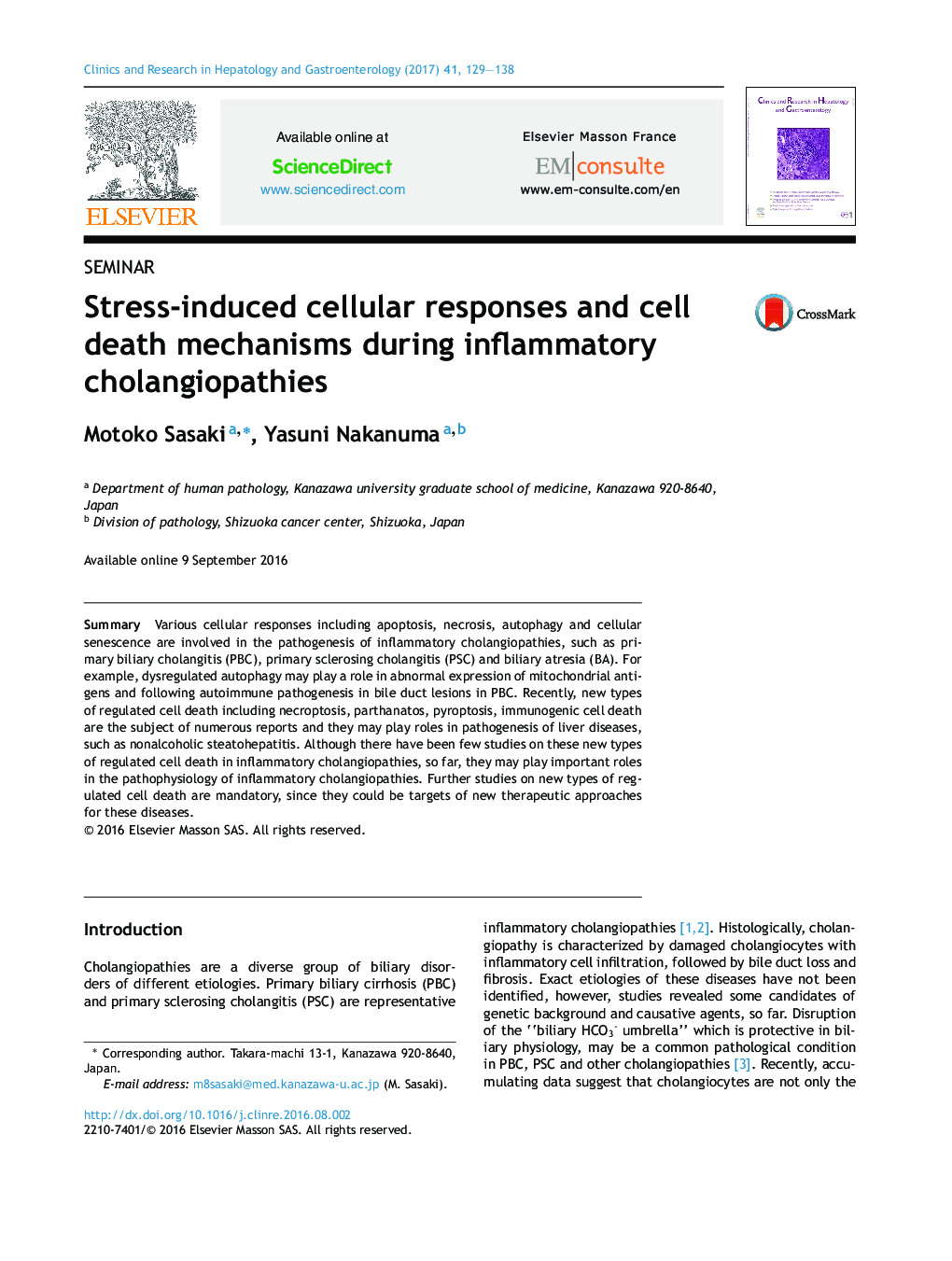| Article ID | Journal | Published Year | Pages | File Type |
|---|---|---|---|---|
| 5657786 | Clinics and Research in Hepatology and Gastroenterology | 2017 | 10 Pages |
SummaryVarious cellular responses including apoptosis, necrosis, autophagy and cellular senescence are involved in the pathogenesis of inflammatory cholangiopathies, such as primary biliary cholangitis (PBC), primary sclerosing cholangitis (PSC) and biliary atresia (BA). For example, dysregulated autophagy may play a role in abnormal expression of mitochondrial antigens and following autoimmune pathogenesis in bile duct lesions in PBC. Recently, new types of regulated cell death including necroptosis, parthanatos, pyroptosis, immunogenic cell death are the subject of numerous reports and they may play roles in pathogenesis of liver diseases, such as nonalcoholic steatohepatitis. Although there have been few studies on these new types of regulated cell death in inflammatory cholangiopathies, so far, they may play important roles in the pathophysiology of inflammatory cholangiopathies. Further studies on new types of regulated cell death are mandatory, since they could be targets of new therapeutic approaches for these diseases.
